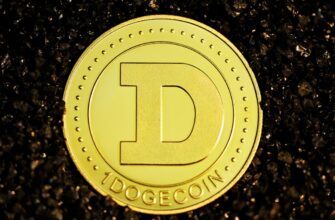- Introduction: The Power of Non-KYC Crypto Wallets
- What Are Non-KYC Crypto Wallets?
- Why Choose a Wallet Without KYC?
- 7 Best Practices for Securing Your Non-KYC Wallet
- 1. Prioritize Hardware Wallets
- 2. Generate Strong Recovery Phrases
- 3. Implement Multi-Layer Security
- 4. Maintain Network Hygiene
- 5. Regular Software Updates
- 6. Isolate Transactions
- 7. Verify Open-Source Code
- Critical Features of Secure Non-KYC Wallets
- Understanding the Risks & Mitigation Strategies
- FAQ: Non-KYC Wallet Security
- Are non-KYC wallets legal?
- Can I recover funds if I lose my seed phrase?
- Do VPNs guarantee anonymity?
- How often should I check my cold wallet?
- Are mobile wallets secure without KYC?
- Conclusion: Security as Continuous Practice
Introduction: The Power of Non-KYC Crypto Wallets
In an era of increasing financial surveillance, non-KYC (Know Your Customer) crypto wallets have become essential tools for privacy-conscious investors. These wallets allow you to store, send, and receive cryptocurrencies without submitting personal identification documents. However, bypassing KYC requires heightened security awareness. This guide reveals proven best practices to secure your non-KYC wallet while maintaining complete financial autonomy.
What Are Non-KYC Crypto Wallets?
Non-KYC wallets are self-custody solutions that operate without identity verification. Unlike centralized exchanges, they don’t require:
- Government-issued ID scans
- Facial recognition checks
- Proof of address documents
Examples include hardware wallets like Ledger, software wallets like Exodus, and open-source mobile wallets like Samourai Wallet for Bitcoin. Their core appeal lies in preserving transactional privacy and reducing data breach risks.
Why Choose a Wallet Without KYC?
Opting out of KYC offers critical advantages:
- Enhanced Privacy: No third-party tracking of your holdings or transactions.
- Reduced Hacking Targets: Centralized exchanges storing KYC data are prime targets for cyberattacks.
- Censorship Resistance: Avoid arbitrary account freezes based on geography or politics.
- Asset Control: True “be your own bank” sovereignty without intermediaries.
7 Best Practices for Securing Your Non-KYC Wallet
1. Prioritize Hardware Wallets
Cold storage devices like Trezor or Ledger keep private keys offline. Always purchase directly from manufacturers to avoid supply-chain tampering.
2. Generate Strong Recovery Phrases
- Use 24-word seed phrases (not 12)
- Never digitize phrases – store on steel plates
- Create multiple copies in geographically separate locations
3. Implement Multi-Layer Security
Combine these defenses:
- Passphrases (25th word encryption)
- Multi-signature setups requiring 2/3 approvals
- Biometric locks on mobile wallets
4. Maintain Network Hygiene
When transacting:
- Use VPNs/Tor to mask IP addresses
- Verify receiving addresses via QR codes
- Enable transaction whitelisting
5. Regular Software Updates
Update wallet firmware monthly to patch vulnerabilities. Subscribe to official security bulletins from your wallet provider.
6. Isolate Transactions
Use separate wallets for:
- Long-term holdings (cold storage)
- Active trading (hot wallet with small balances)
- Privacy coins like Monero
7. Verify Open-Source Code
Choose wallets with audited, publicly verifiable code (e.g., Electrum, Sparrow Wallet). Avoid “closed-source” solutions claiming anonymity.
Critical Features of Secure Non-KYC Wallets
When selecting a wallet, ensure it includes:
- Hierarchical Deterministic (HD) address generation
- Coin control capabilities
- Custom fee adjustments
- Plausible deniability features
- No telemetry data collection
Understanding the Risks & Mitigation Strategies
Physical Theft: Store hardware wallets in safes with decoy passwords. Use tamper-evident bags.
Phishing Attacks: Bookmark official wallet sites. Never click links in unsolicited messages.
Regulatory Shifts: Diversify across jurisdictions and wallet types. Monitor legislative changes.
User Error: Conduct test transactions with minimal amounts before large transfers.
FAQ: Non-KYC Wallet Security
Are non-KYC wallets legal?
Yes, in most jurisdictions. Self-custody wallets aren’t subject to KYC laws which apply to financial institutions. Regulations target exchanges, not personal wallets.
Can I recover funds if I lose my seed phrase?
No. Seed phrases are the ultimate backup. Without them, funds are irrecoverable. This underscores the critical importance of physical storage.
Do VPNs guarantee anonymity?
VPNs mask IP addresses but don’t anonymize blockchain transactions. Combine with coin mixers (for Bitcoin) or use privacy coins like Zcash for enhanced obfuscation.
How often should I check my cold wallet?
Limit access to 2-3 times annually. Each connection increases exposure risk. Use blockchain explorers to monitor balances without unlocking.
Are mobile wallets secure without KYC?
Reputable open-source mobile wallets (e.g., Cake Wallet) can be secure with precautions: disable cloud backups, use dedicated devices, and enable full-disk encryption.
Conclusion: Security as Continuous Practice
Mastering non-KYC wallet security demands ongoing vigilance. By implementing these best practices—prioritizing hardware storage, fortifying seed phrases, and maintaining operational discipline—you create a robust defense against both digital and physical threats. Remember: in decentralized finance, you are the ultimate custodian. Your privacy and security now depend on the protocols you establish today.








